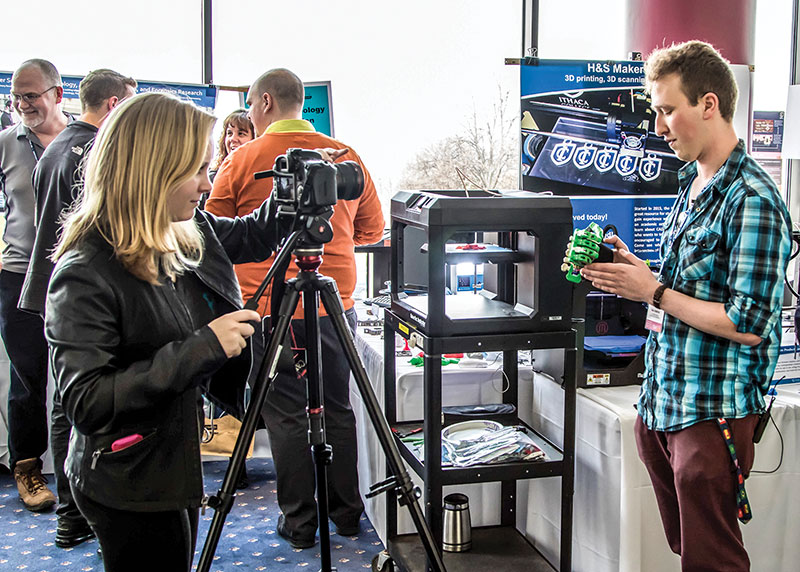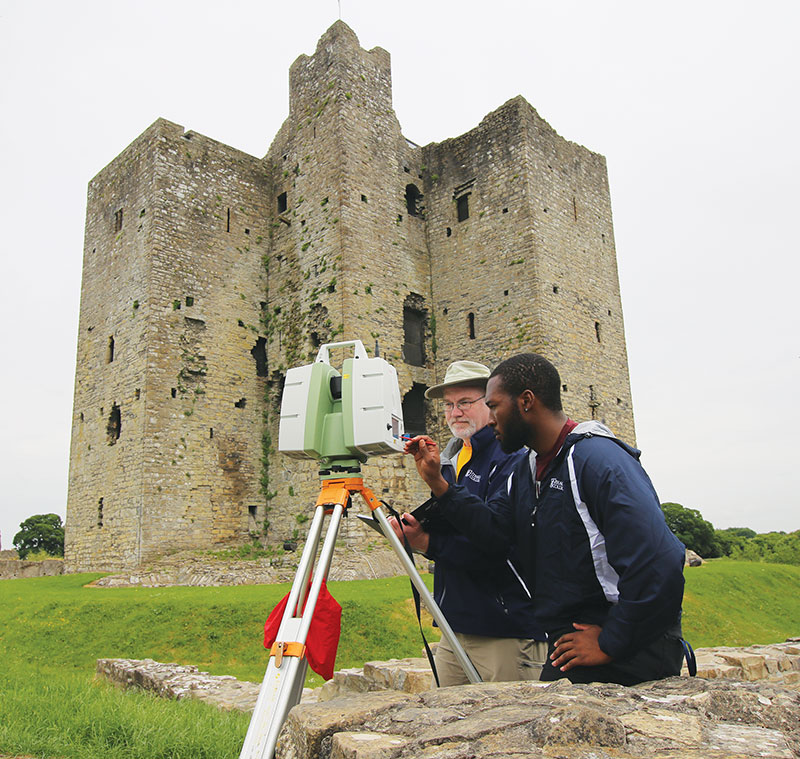A Stellar SPS Chapter
Spring
2018
Singularities - Profiles in Physics
A Stellar SPS Chapter
Rachel Kaufman, Editor
The SPS Outstanding Chapter Advisor Award is the most prestigious award given by SPS, bestowed annually on the basis of the leadership, student leadership development, support, and encouragement the advisor has provided to his or her chapter.
For his leadership and guidance of Ithaca College's SPS chapter, Dr. Michael "Bodhi" Rogers, a professor of physics, an archaeologist, and the coordinator of the science teaching certification program at Ithaca College, is SPS's 2017 Outstanding Chapter Advisor.

Rogers has been nominated a stunning 14 years in a row. This is his first year winning.
"The students kept saying, 'Is this going to be the year?' I told them that with my role on the SPS National Council I get to see how many amazing chapters and chapter advisors are out there....Knowing the group that I'm now part of is pretty humbling."
"Dr. Rogers is a great part of our chapter, and without him we would not be as prosperous of a chapter as we are now," wrote Amy Parker, Ithaca College SPS president, in her nomination letter.
Rogers has a wide and varied set of research interests. In addition to a PhD in physics, he also has a master's in archaeology and is active in education research. During the first two-decades of his career he used tools such as ground-penetrating radar and magnetometry to look beneath the ground without digging at archaeology sites, but most recently has been using ground-based LiDAR to digitally preserve historic architecture. "I was fortunate to find a way of combining my passion for archaeology and my passion for physics," he says. He has laser-scanned historic homes, historic landmarks, and even an entire castle in Ireland, taking students along. "I love doing research with students," he says. "I enjoy having physics students conduct research outside of the traditional laboratory....We've gotten to do some amazing projects in amazing places."
During Rogers's time at Ithaca, he has helped the physics department grow from 20 majors 15 years ago to around 75 today, an increase that has required bringing on three new full-time faculty.
"We put a lot of effort into that," he says. The SPS chapter has also grown under Rogers's leadership—to 40 active members, all of whom are working on at least one project.
These projects include building a 3-D printer that prints in clay (to complement the department's other 3-D printers, including PancakeBot, a 3-D printer that uses pancake batter), collaborating with occupational therapy students to develop adaptive devices, fundraising for PhysCon, and building "The Naked Eye Observatory," a project that was recently funded through the SPS Chapter Research Award (see pp. 8-9). The Naked Eye Observatory, led by student Adam Rabayda, will be an outdoor "modern Stonehenge," where observers can see astronomical phenomena without telescopes or other equipment. "We've proposed this project to the Ithaca College administration to have it centrally located on campus. We are hopeful that we will receive administrative approval and financial support in the near future to make this exciting project come to life." Rogers says.
He says he feels comfortable stepping back and letting students take the lead. "Watching the students become more experienced, passing knowledge on, and mentoring each other… has been really exciting. My role is, when they need or want help, I step in and give advice." A change to the chapter structure helped. Now the chapter's secretary and treasurer automatically become president and vice president the next year, leads to chapter leadership that can train incoming board members.
"The greatest reward is watching students grow professionally and personally. Undergraduates arrive at college at the top of their high-school game, but they have so much yet to learn. In just four years they leave college as emerging professionals." //

